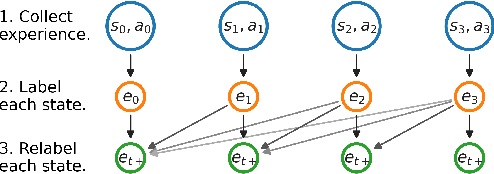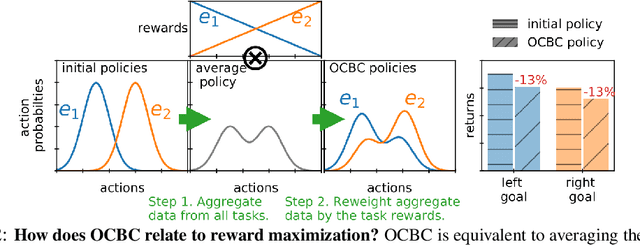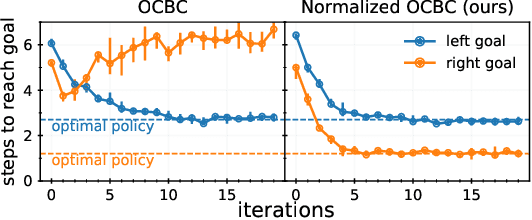Imitating Past Successes can be Very Suboptimal
Paper and Code
Jun 07, 2022



Prior work has proposed a simple strategy for reinforcement learning (RL): label experience with the outcomes achieved in that experience, and then imitate the relabeled experience. These outcome-conditioned imitation learning methods are appealing because of their simplicity, strong performance, and close ties with supervised learning. However, it remains unclear how these methods relate to the standard RL objective, reward maximization. In this paper, we prove that existing outcome-conditioned imitation learning methods do not necessarily improve the policy; rather, in some settings they can decrease the expected reward. Nonetheless, we show that a simple modification results in a method that does guarantee policy improvement, under some assumptions. Our aim is not to develop an entirely new method, but rather to explain how a variant of outcome-conditioned imitation learning can be used to maximize rewards.
 Add to Chrome
Add to Chrome Add to Firefox
Add to Firefox Add to Edge
Add to Edge